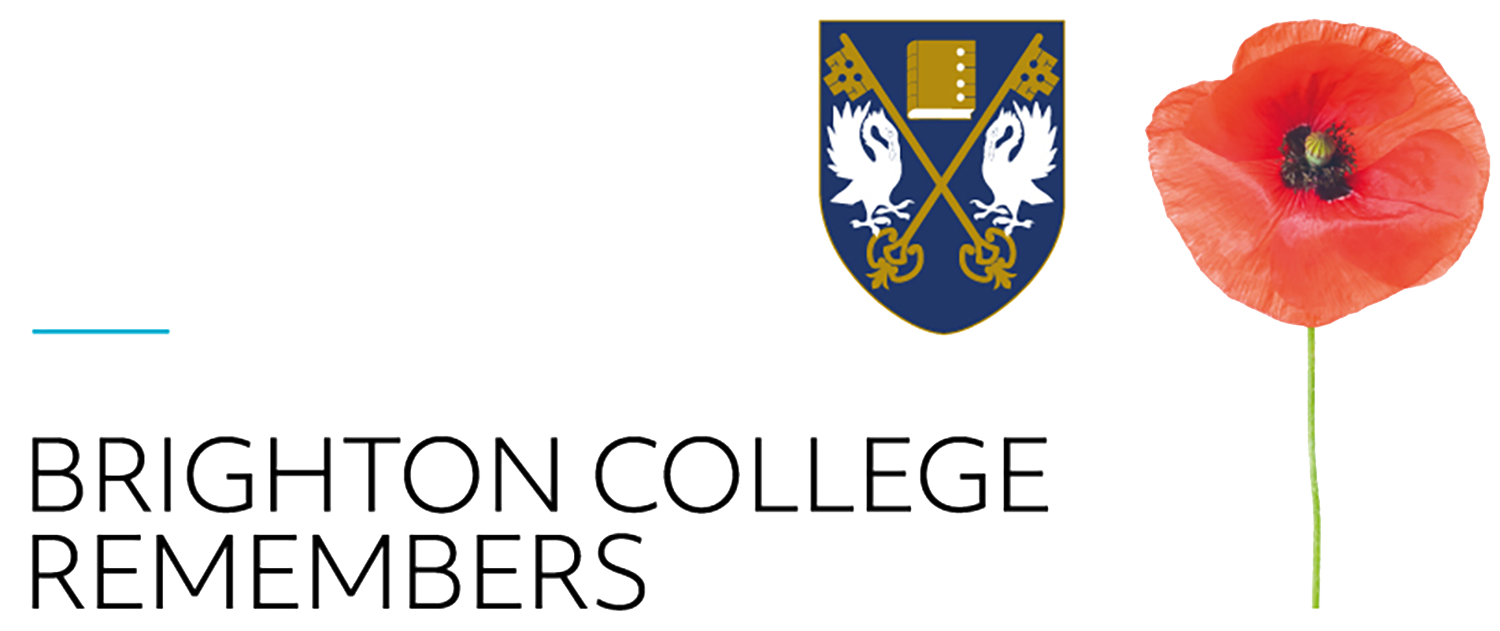Captain, Royal Engineers
Born: September 3rd 1887
Died: August 8th 1915
Age at Death: 27
Died of Wounds, France, August 8th 1915
Grave Reference: Caberet Rouge British Cemetery, Souchez: XVII. C. 41.
Son of Alexander Glenday of Molyneux Park, Tunbridge Wells.
Mother - Marie Louise Conclaves.
A DONATION HAS BEEN MADE TO THE MEMORIAL STATUE IN HONOUR OF THIS SOLDIER BY AN ABRAHAM HOUSE LEAVER 2016.
R.M.A Woolwich (8th). Royal Engineers (Sec. Lieut. 1907; Lieut. 1909; Capt. 1914)
Alexander enlisted 1906, gazetted a lieutenant. He served as such in Quetta. WO 339/6674.
Brother to Roy Gonclavez Glenday (Ha. 1897-1903), and Ferdinand Gonclavez Glenday (Ha. 1900-1903). A third, Vincent, became a senior colonial official in East Africa, eventually Sir Vincent Goncalves Glenday KCMG OBE.
Captain Alexander Gonclavez Glenday (Hampden 1898-1904)
Alexander Glenday was born on September 3rd 1887 in Sutton-Coldfeld, Warwickshire. He was the eldest son of Rev Edward Alexander Glenday, and his wife Marie (nee Gonclavez). Their youngest son Ferdinand was also to be killed in the war, see entry below while two others, Roy and Vincent were to become distinguished economists and colonial administrators respectively. Relatively little is known about Glenday’s time at the College, despite his extensive time there, except that during the period the family lived in Tunbridge Wells, Sussex. After leaving the College Glenday went to RMA Woolwich and received a commission in the Royal Engineers in 1907 and in 1914, just before war broke out, a promotion to Captain.
After war began he was attached to 21st Company, 3rd Sappers and Miners, which formed part of the 3rd Lahore Division (Indian Army) in France, it was customary for technical units such as Engineer Companies to be seconded directly from the British Army to the Indian Army. In August 1915 the Lahore Division was in the line in France having played a part in the Battle of Festubert in May and suffered heavy casualties the previous winter. The circumstances of his death are unclear, with some records stating that he died of wounds and others saying that he was killed in action but it is clear that on or around 8th August 1915 Glenday was recorded as dead and an attempt made to inform his next of kin, who was his Roy brother in East Africa. Administrating his estate appears to have been particularly difficult and there are several records of tradesmen including tobacconists and Cox and Kings bank attempting to chase the India Office for money that he died owing them. The Lahore Division was withdrawn from France shortly afterwards because there were great concerns about the Indians’ morale and fears that experiencing another European winter in the trenches would break the unit.
Source: LEST WE FORGET Project, Brighton College 2014-15
Profile: GLENDAY, ROY, British Economist: born July13, 1889 Sutton Coldfleld, Warwickshire: son of Alexander and Marie Lopes(Goncalves) Glenday; educated at BrightonCollege ; Emmanuel College, Cambridge: MA, LI B : married Pamela Rogers, 1924(dec.) ; one daughter Chief Research Chemist , Magadl Soda Co., Kenya Colony,1913-15. Lieut.. 3rd King's African Rifles. 1914-18; mentioned In despatches Joinedstaff of Federation of BritishIndustries. 1918; now Economic Director and Adviser. Author: Passing of FreeTrade. 1930; Economic Consequences of Progress. 1933; Future of Economic Society,1944 . Residence: Lawyer Cottage, Magpie Lane, Coleshlll. Amersham, Bucks. Office: Federation of British Industries, 21 Tothlll St., Westminster, London, England
Also The Great War in Africa 1914-1918: Neither column was in touch with the other, nor with headquarters, and on approaching the German boma [fort] west of Kisaki, each engaged the enemy independently. The columns thus failed to support one another, and as they were too depleted and exhausted to press home their attacks, for the first time in the campaign the enemy saw British troops retire. Smuts appears not to have fully realized the importance of supplies. None of his troops was on more than half rations, and many were forced to do with considerably less. Some went for as long as thirty-six hours with no rations at all. Weakened by hunger, malaria and dysentery, men daily fell out on the line of march. Most staggered into camp hours later. But when the comrades of a man in the 6th South African Infantry reported that he had failed to show up, a stretcher party was sent back and found him dead. "There was nothing wrong with him," said the officer who examined the body,"Only starvation." Still, Smuts's soldiers were expected to march and fight .
Lettow-Vorbeck threw up ambushes and fought stubborn rear guard actions; there were innumerable vicious little battles. In one small fight in the Uluguru Mountains, Lieutenant RG Glenday of the 3rd KAR charged three machine guns, engaged in a revolver duel at close range with a German officer, and was severely wounded, losing an arm. His only reward was a Military Cross.
In The King's African Rifles Moyse-Bartlett states: Lieutenant R.G. Glenday (Special List) charged three enemy machine guns and had a revolver duel with a German officer. He was wounded and subsequently lost an arm. Glenday was awarded the Military Cross for his part in the action.
To mark Remembrance in 2023, a Brighton College family visited Cabaret Rouge Cemetery, and placed flowers on Alexander’s grave.


